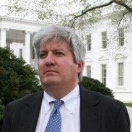
Imagine surgeons able to perform complicated, delicate surgeries remotely from thousands of miles away; factories with smart equipment that can self-diagnose and repair themselves before they break; and mobile phones and tablets that can download full length high-definition (HD) movies in less than five seconds, 100 times faster than current 4G wireless networks and 25,000 times faster than was possible with 3G networks less than ten years ago.
These possibilities are just a few examples of the promise of next-generation wireless networks that will enable breakthrough applications for consumers, smart cities, and the Internet of Things, many of which cannot even be imagined today.
To help bring this wireless future to life, the Administration is announcing a new $400 million Advanced Wireless Research Initiative. Through this Initiative, the National Science Foundation and more than twenty technology companies and private-sector associations will invest $85 million in four city-scale, public-private testing platforms to support fundamental research on advanced wireless technologies. The fundamental research supported on these platforms—including $350 million in NSF academic research over the next seven years that can utilize the testing platforms—will allow academics, entrepreneurs, and the wireless industry to test and develop advanced wireless technology ideas at-scale, some of which may translate into key future innovations for next-generation, 5G networks and beyond.
As part of this Initiative, cities and communities will collaborate with university researchers and technology companies to research, develop, and deploy cutting-edge technologies in their communities using the new research platforms as a catalyst, which in turn will help drive new opportunities for innovation, high-skilled jobs, high-growth startups, and smart, connected community services. Complementing this effort, the Administration has also issued a national call to action seeking input on new actions to accelerate the development of smart cities in advance of an upcoming White House Smart Cities Initiative event in September.
This wireless research effort builds on the Administration’s accomplishments in wireless and wireline broadband policy, and on the nearly $150 billion in 4G LTE investment by U.S. wireless operators since 2010. Through forward-thinking spectrum policy initiatives, targeted Federal spending, and private investment, the United States has become a world leader in wireless, with more than 98 percent of Americans having access to fast 4G/LTE mobile broadband at speeds up to ten times faster than eight years ago.
Today’s announcements also build on the Federal Communications Commission’s (FCC) Spectrum Frontiers order, which made the United States the first country in the world to make vast quantities of high-frequency millimeter wave spectrum available for both licensed and unlicensed use. The last decade has witnessed incredible growth in mobile broadband, transforming our day-to-day lives, while spurring the development of entirely new industries and transforming others—all in ways unimaginable only a few years ago. But today’s mobile-enabled world is just the tip of the iceberg. The actions yesterday by the FCC and the Administration’s Advanced Wireless Research Initiative being announced today will help usher the arrival of a similarly incredible future by supporting the development of next-generation wireless technologies that will pay dividends for many years to come.
Stay up to date on the upcoming testing platforms competition, or get your community or organization involved!
Jim Kurose is Director of the National Science Foundation’s Computer, Information Science, and Engineering Division.
Aadil Ginwala is Assistant Director for Education and Telecommunications Innovation at the White House Office of Science and Technology Policy.


